|
Keynote Speakers |
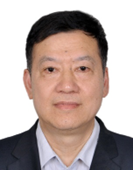 |
Depei Qian Title: |
ABSTRACT: This talk begins with a brief review of HPC development in China in the past decades and a discussion on the role of computing in enabling problem-solving. The new demands and challenges raised by big data (BD) and artificial intelligence (AI) applications to computing are presented. Some critical issues in establishing the computing the next computing infrastructure under the circumstance of “East-west Computing transfer” strategic project are discussed. Finally, the task of building CNGrid-NG, the next generation supercomputing infrastructure of China is proposed.
BIO:
Qian Depei, professor of Beihang University, fellow of CCF, academician of Chinese Academy of Sciences. He has served as a member of the expert group of the National High-tech R&D Program (the 863 program) and the National Key R&D Program in information technology since 1996 and led several key national projects on high performance computing.
He has been working on computer architecture and computer networks for many years. His current research interests include high performance computer architecture and implementation technologies, distributed systems, network computing, and multicore/manycore programing. He has published more than 400 papers in journals and conferences.
 |
M. Jamal Deen Title: |
ABSTRACT: Several of the grand challenges in engineering for current and future healthcare and societal needs require wearable sensors and data analytics. In the health areas, we will discuss some major healthcare issues related to active aging and several examples of smart wearable systems. We will discuss the use of wearable sensor systems to measure your walking signals and sleep quality, and their customization to an individual’s needs. Smart sensors are also used for a living diary and in a smart home server that functions as the “brain” of a smart medical home. In all these applications, intelligent software techniques is a key enabler for their user-friendly, accurate and cost-effective use. Further, the use of data analytics and intelligent software is important to provide customizable information to the users based on data collected from a variety of sensors. In addition, we will discuss some of the trends and opportunities in wearable sensors for healthcare. Finally, we will discuss some applications of smart sensors and data analytics, and what are some important research issues in sensors, home networks, autonomic systems and healthcare in the context of a futuristic smart medical home.
BIO:
Dr. M. Jamal Deen is Distinguished University Professor and Director of the Micro- and Nano-Systems Laboratory, McMaster University. He served as the elected President of the Academy of Science, The Royal Society of Canada in 2015-2017. His current research interests are nanoelectronics, optoelectronics, nanotechnology, data analytics and their emerging applications to health and environmental sciences. Dr. Deen’s research record includes more than 660 peer-reviewed articles (about 20% are invited), two textbooks on “Silicon Photonics- Fundamentals and Devices” and “Fiber Optic Communications: Fundamentals and Applications”, 12 awarded patents of which 6 were extensively used in industry, and twenty-one best paper/poster/presentation awards. Over his career, he has won more than seventy-five awards and honors. As an educator, he won the Ham Education Medal (highest award for educators)from IEEE Canada, the McMaster University President’s Award for Excellence in Graduate Supervision, and McMaster Student Union Macademics’ Lifetime Achievement Award for his exceptional dedication to teaching and significant contribution to student life, the community at large, and academia.
As an undergraduate student at the University of Guyana, Dr. Deen was the top ranked mathematics and physics student and the second ranked student at the university, winning the Chancellor’s gold medal and the Irving Adler prize, respectively. As a graduate student, he was a Fulbright-Laspau Scholar and an American Vacuum Society Scholar. He is a Distinguished Lecturer of the IEEE Electron Device Society for two decades. His awards and honors include the Callinan Award as well as the Electronics and Photonics Award from the Electrochemical Society; a Humboldt Research Award from the Alexander von Humboldt Foundation; the Eadie Medal from the Royal Society of Canada; McNaughton Gold Medal (highest award for engineers), the Fessenden Medal, and the Gotlieb Computer Award, all from IEEE Canada. In addition, he was awarded the four honorary doctorate degrees in recognition of his exceptional research and scholarly accomplishments, exemplary professionalism and valued services. Dr. Deen has been elected by his peers as Fellow/Academician of twelve national academies and professional societies including The Royal Society of Canada (FRSC) - The Academies of Arts, Humanities and Sciences of Canada (the highest honor for academics, scholars and artists in Canada); Academician (Foreign Member) of The Chinese Academy of Sciences (A-CAS, China’s highest national honor in the area of science and technology and highest academic title); The World Academy of Sciences (FTWAS), National Academy of Sciences India (FNASI-Foreign); The Institute of Electrical and Electronic Engineers (FIEEE); The American Physical Society (FAPS); and The Electrochemical Society (FECS). Most recently (Nov 2022), he was elected the inaugural Vice President (North) of The World Academy of Sciences, representing the developed countries. In 2018, he was elected to the Order of Canada, the highest civilian honor awarded by the Government of Canada.
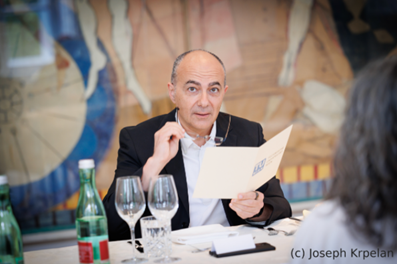 |
Schahram Dustdar Title: |
ABSTRACT:
Computational continuum as a critical infrastructure, we must know how to coordinate and compile the implementation solution of computational continuum. Edge computing is an indispensable part of computing continuum. There are many interesting examples about edge computing, such as intelligence enhancement, improving edge computing performance through AR and VR capabilities, for field work, for mixed reality training or for virtual application scenarios in urban environments. All examples require a robust and flexible infrastructure.
The question on top of all this is: how do we push AI to the edge? We don't want to write different applications for each platform, we just want the infrastructure to be smart, so, which characteristics of edge computing systems should be abstracted as first-class citizens into the underpinning model? On this basis, we put forward the argument of marginal intelligence. The complexity of the systems that we have nowadays require that we put intelligence into the infrastructure, and not to the software application itself. And we also require fundamentally novel mechanisms for this infrastructure.
BIO:
Dr. Schahram Dustdar is Full Professor of Computer Science heading the Research Division of Distributed Systems at the TU Wien, Austria. He holds several honorary positions: Francqui Chair Professor at University of Namur, Belgium (2021-2022), University of California (USC) Los Angeles; Monash University in Melbourne, Shanghai University, Macquarie University in Sydney, University Pompeu Fabra, Barcelona, Spain. From Dec 2016 until Jan 2017 he was a Visiting Professor at the University of Sevilla, Spain and from January until June 2017 he was a Visiting Professor at UC Berkeley, USA.
He is an elected member of the Academia Europaea: The Academy of Europe, where he is chairman of the Informatics Section, as well as an IEEE Fellow (2016), an Asia-Pacific Artificial Intelligence Association (AAIA) President (2021) and Fellow (2021). He is an EAI Fellow (2021) and an I2CICC Fellow (2021). He is a Member of the 2022 IEEE Computer Society Fellow Evaluating Committee (2022).
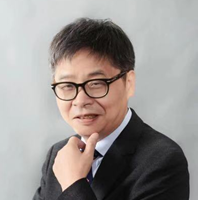 |
Minyi Guo Title: |
ABSTRACT: Climate change and energy crisis are two of the biggest global issues of our time. It is critical to develop computing techniques that do not compromise the wellbeing of future generations. To reduce IT carbon footprint, and to support emerging data-analytic workloads that tend to scale well with large number of compute nodes, there is a heightening demand for green high-performance computing and communication systems. In this talk we would like to share our views on the design methodologies for sustainable computing. We divide sustainable computing system design into three layers and present the opportunities that each layer faces. We also discuss the deep challenges that must be addressed in the sustainable computing era. First, a new resource management abstraction for gaining visibility into the underlying infrastructure is needed. In addition, a framework that synergistically combines various software/hardware tuning knobs at each layer is necessary. Finally, it is time to develop appropriate autonomic control schemes to handle the dynamicity and complexity of the cloud. The above methodology constitutes the initial idea of a “Energy-Architecture-Workload” co-designed approach, which will lead to a more environmentally friendly digital infrastructure, as required by the ongoing shift in computing paradigm.
BIO: Prof. Minyi Guo is currently a Zhiyuan Chair Professor at the Department of Computer Science and Engineering of Shanghai Jiao Tong University (SJTU), China, and was the department head from 2009 to 2019. His research spans parallel/distributed computing, computer architecture, compiler optimization, cloud computing, and big data. He received the National Science Fund for Distinguished Young Scholars from NSFC in 2007, and he was appointed as the Chief Scientist of the prestigious 973 Program in 2014. He is the Editor-in-Chief of IEEE Transactions on Sustainable Computing (TSUSC), and he has served as General/Program Chair of many well-established IEEE conferences. Prof. Guo has published 8 books and 500+ publications in premier journals/conferences and a dozen of best paper awards. Prof. Guo has received numerous prestigious government/industry awards, including the Chinese National Award for Technological Invention, and the IEEE TCSC Technical Achievement Award for Excellence in Scalable Computing, etc. He is a foreign member of the Academia Europaea, a Fellow of IEEE and CCF, and an ACM Distinguished Scientist.
 |
Kenli Li Title: |
ABSTRACT: Ultrasound (US) imaging is a widely used screening tool for defects examination and prenatal diagnosis. Accurate acquisition of fetal standard planes with key anatomical structures is crucial for substantial biometric measurement and diagnosis. However, the standard plane acquisition is a labour-intensive task and requires operators equipped with a thorough knowledge of fetal anatomy, which leads to a high rate of misdiagnosis in diagnosing fetal malformations. To improve the accuracy and real-time of AI-based systems for automatic ultrasound image detection and quality assessment, various deep learning models are proposed to improve the corresponding accuracy of standard plane interpretation. And different parallel computing models, including pipeline, data parallelism and communication optimization methods, are used to achieve real-time standard plane detection. In addition, we create a novel end-edge-cloud collaborative architecture for ultrasound image interpretation and auxiliary diagnosis to alleviate the workload and boost examination efficiency.
BIO: Kenli Li, Vice President of Hunan University, Member of CCF, the Principal of the High Performance Computing Discipline Innovation Intelligence Introduction Base of the Ministry of Education, the Director of the Engineering Research Center of the Ministry of Education for High Performance Computing Application Software Technology, Vice Chairman of the National Supercomputing Innovation Alliance, Member of the Expert Committee of the New Generation Artificial Intelligence Industry Technology Innovation Alliance, Member of the General Expert Group of the National Key Research and Development Program of High Performance Computing, Chairman of CCF Changsha, Vice Chairman of Hunan Computer Society, Associate Editor of IEEE-TC/TSUSC/TII, editorial board member of "Computer Research and Development". He hosted more than 30 national, provincial and ministerial projects, including the national key research and development plans, and key projects of the Fund Committee. He won the First Prize of National Science & Technology Progress Award for Innovation Team (ranked 13th). His main research areas are parallel and distributed processing, supercomputing and cloud computing, high-performance computing for big data and artificial intelligence, etc.
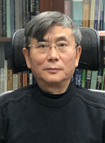 |
Zhiwei Xu Title: |
ABSTRACT: The idea of utility computing was proposed 60 years ago by John McCarthy, but now is poised to become a mainstream reality. This talk presents Information Superbahn, a perspective on computing utility, built on experiences of grid computing, services computing, and cloud computing. According to the Information Superbahn perspective, future computing utility should provide worldwide subscribers with four distinct features: (1) pay-per-use services, (2) planet-scale culture, (3) low-entropy systems, and (4) high-goodput utility. Preliminary evidence is provided to reveal the potential of Information Superbahn.
BIO: Zhiwei Xu is a professor at the Institute of Computing Technology, Chinese Academy of Sciences. His research areas include computer architecture and distributed systems. He has led over a dozen priority research projects in supercomputers, distributed systems, and energy-efficient AI processors. Professor Xu holds a PhD degree from University of Southern California.
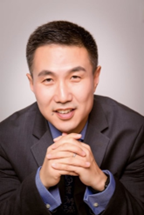 |
Xiangyang Li Title: |
ABSTRACT: Industrial Internet is a new generation of intelligent network formed by the deep integration of industrial production system and Internet, and its core is the deep integration application of information and physical system with the integration of perception, communication, analysis, decision-making and control. As a next-generation industrial infrastructure, the Industrial Internet will reshape the entire industrial production and manufacturing system, and form a new intelligent manufacturing system with equipment online, enterprises in the cloud and remote control, which contribute to the digitalization, networking and intellectualization of industrial production. As one of the core supports of Industrial Internet, intelligent IoT has been profoundly changing every aspect of industrial production. The core tasks of IoT are ubiquitous low-power depth perception, wireless-based interconnection of all things, and intelligent data sharing and computing. In this presentation, I will share some challenges of the Industrial Internet, especially the challenges of architecture, intelligent sensing, edge computing, and security. Meanwhile I will share our team's research work in intelligent IoT, including low-power and passive based intelligent sensing, large-scale passive low-power networks, intelligent edge computing, and secure privacy protection for intelligent IoT.
BIO: Xiangyang Li, Professor, Executive Dean of School of Computer Science and Technology, University of Science and Technology of China, ACM Fellow, IEEE Fellow, ACM Distinguished Scientist, former Co-Chair of ACM China, Executive Director of ACM Council, New Venture Chair Professor, Distinguished Young Fund recipient of Foundation Committee, Chief Scientist of National Key R&D Program for IoT Security Project, He has served as Assistant Professor, Associate Professor and Professor at Illinois Institute of Technology, EMC Chair Professor at Tsinghua University, and Visiting Professor at Microsoft Research Asia. He received his master's degree and PhD in computer science from the University of Illinois, and a double degree in computer science and business administration from Tsinghua University. Prof. Xiangyang Li has been engaged in research on Smart IoT, IoT and data security privacy, data sharing and trade.
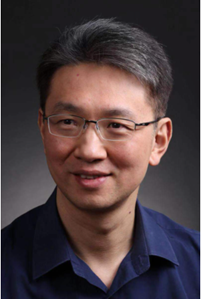 |
Yunhao Liu Title: |
ABSTRACT:
Over the last few years, the applications of artificial intelligence technology are becoming more and more approved by the society, as the number of people slowly warming up to the idea of including AI in our everyday lives increases. On the other hand, with the popularity of IoT (Internet of Things), the amount of data people need to analyze grows. The analysis of these data relies more on AI technology. As a bridge between the physical world and the digital world, IoT also provides new opportunities to apply to AI technology.
As a result, the birth of AIoT (artificial intelligence of things), the combination of AI and IoT, is inevitable. AIoT has unwittingly penetrated every aspect of human life, from small mobile applications and smart homes to large massive group analysis, city management, and policymaking. However, AIoT, like any other technological inventions, brings not only crucial and new opportunities but also challenging obstacles to human beings at the same time. Is AIoT our new Pandora’s box?
BIO: Yunhao Liu is a Chair Professor and the dean of the Institute of Global Innovation Exchange (GIX) at Tsinghua University. He also served as the Dean of School of Software in Tsinghua, and the MSU Foundation Professor and the Chairperson of Department of Computer Science and Engineering in Michigan State University. Yunhao received his B.S. degree in the Department of Automation at Tsinghua University, China, and an M.S. and a Ph.D. degree in Computer Science and Engineering at Michigan State University, USA. He is now the Editor-in-Chief of ACM Transactions on Sensor Network and the Honorary Chair of ACM China. He receives many best paper awards in international conferences including ACM SIGCOMM, MobiCom, SenSys, and etc. He was named Fellow of the Association for Computing Machinery (ACM) in 2015 for contributions to IOT and sensor networks and Fellow of the Institute of Electrical and Electronics Engineers (IEEE) in 2015 for contributions to wireless sensor networks and systems.
Organizers:
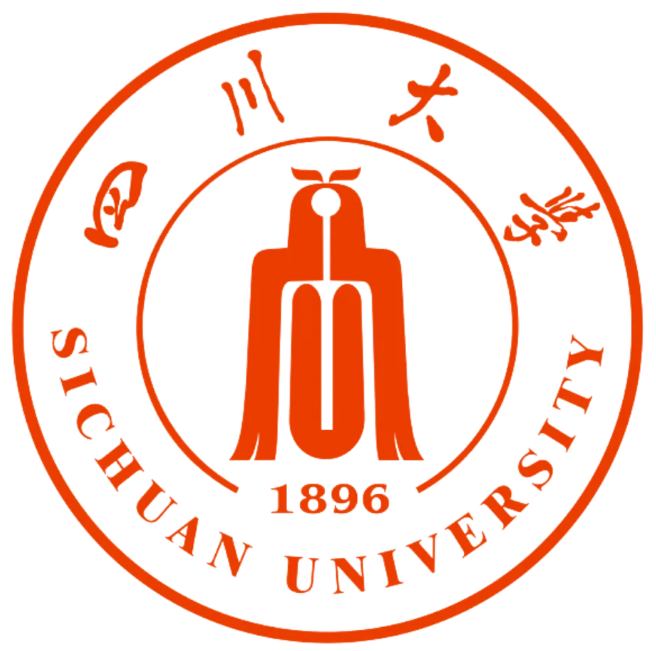
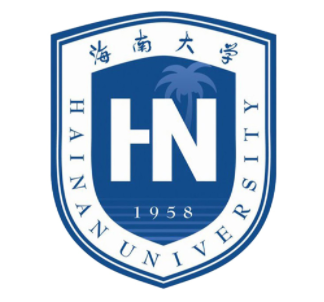
IEEE Ethics Reporting
Copyright HyperIntelligence-2022. Created and Maintained by HyperIntelligence-2022 Web Team.




